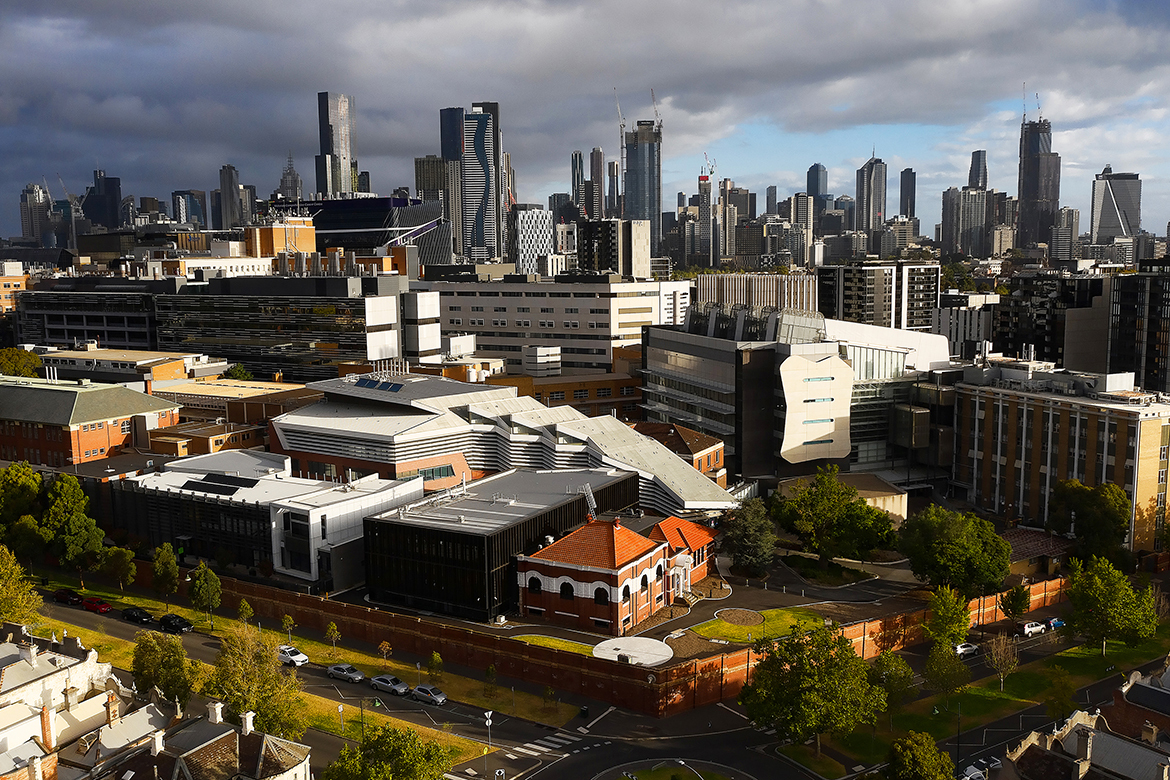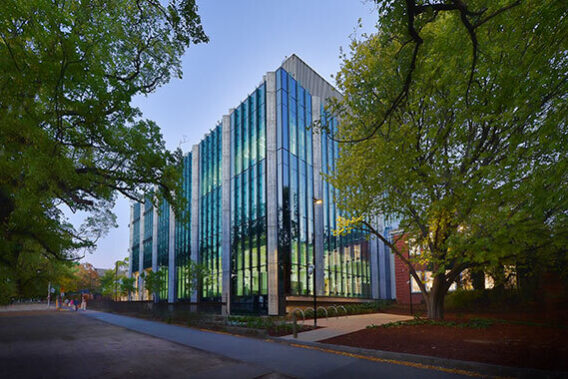Kane Constructions delivered the University of Melbourne Bio21 Stage 2C Advanced Microscopy Facility in September 2020.
The $16 million development designed to meet PC2 laboratory requirements, consists the construction of a new three storey mass timber laboratory building at the bioscience campus in Parkville. The new microscopy facility is located on the ground floor of the Ruth Bishop Building and is named after the Rotavirus co-discover and virologist, Professor Ian Holmes: the Ian Holmes Imaging Centre.
Works included preservation of the heritage listed market wall, refurbishment of the historic Veterinary Research Institute Building, a new link to the recently completed Nancy Millis building and major infrastructure upgrades to support the new facility.
Kane's Project Director Paul Christian led the tender process for the project. “The design constraints for cyro electron microscopes housed in the new facility is very strict in terms of permissible vibration allowances on the structure, and the building services requirements to maintain constant power and temperature control to the facility is onerous. This makes this project a perfect fit for Kane’s skill sets. We are thrilled to partner with the University of Melbourne and the Bio21 Institute to deliver this flagship project."
The Bio21 Stage 2C Advanced Microscopy VRI CRYO-EM Facility is unique and complex. The University of Melbourne retained part of the VRI existing building to respect its historical significance to the State of Victoria as the only surviving structure connected with the foundation of the first tertiary School of Veterinary Science in Australia.
Kane has a longstanding relationship with The University of Melbourne, following the delivery of multiple tertiary projects of comparable scale and complexity in fully operational environments.

